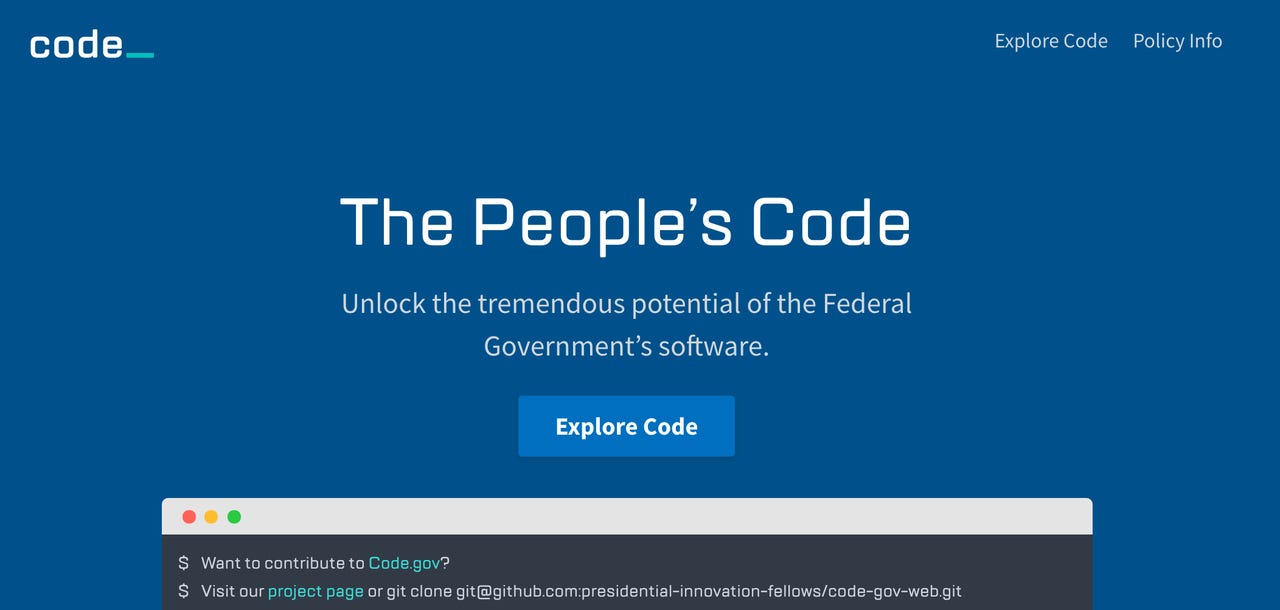Open questions for Code.gov as outcome of presidential election looms


The U.S. government has taken an important step forward following the release of its open-source software policy in August, with the unveiling of Code.gov, a portal aimed at helping government agencies share code in order to save taxpayer money and make IT projects nimbler. U.S. CIO Tony Scott made the announcement in an official blog post:
Code.gov already boasts access to nearly 50 open source projects from over 10 agencies - and we expect this number to grow over the coming months as agencies work to implement the Federal Source Code Policy. Further, Code.gov will provide useful tools and best practices to help agencies implement the new policy. For example, starting today agencies can begin populating their enterprise code inventories using the metadata schema on Code.gov, discover various methods on how to build successful open source projects, and much more.
Under the Federal Source Code Policy, 20 percent of all newly developed custom code must be made open source for the next three years. The point is to cut down on waste by avoiding duplication of code that need only be written once, reducing government reliance on proprietary software products, and improving the quality of government-written or procured software code. National security-related agencies, it should be noted, are exempt from the policy.
See also: White House launches Code.gov to share open source government code | US must open-source custom code to boost reuse, cut wasted dev | The US government buys into open-source programming | The most technology-driven election in American history
Agencies with code contributions on the site today include the Consumer Financial Protection Bureau, Department of Commerce, Department of Energy, Environmental Protection Agency, NASA, Treasury, Department of Agriculture and the General Services Administration.
Analysis: Open Questions Remain for Code.gov, U.S. Open Source Policy
Code.gov's arrival follows in the footsteps of previous open-source efforts by the Obama administration, such as Data.gov, which provides public API access to nearly 200,000 government data sets. At face value, it and the open source policy are welcome and long-overdue measures.
While Code.gov is intended to save public dollars, it's also about providing chunks of useful code that can be re-applied again and again, quickly providing value to both government workers and the public.
For example, while opinions vary on its initial quality, one of the projects available on Code.gov today is the Facebook Messenger chatbot developed by the president's office. It's easy to see how any number of federal, state and local government agencies could take advantage of such a tool for their various constituencies.
The federal open source policy has its critics, however, such as the Business Software Alliance. Open source code-sharing could actually prove more expensive, as well as pose a security risk, the lobbying group argued. Indeed, as Constellation Research VP and principal analyst Steve Wilson noted in August, nothing about open source code intrinsically makes it better and more secure. Officials should take pains to ensure projects shared through Code.gov undergo a rigorous review and validation process.
Code.gov also comes before the historic U.S. presidential election contest between Democrat Hillary Clinton and Republican Donald Trump. At this writing, the election's winner is unknown. Should Clinton win, the continuation of the government's open-source policy would seem likely, given statements in her official position paper on technology.
Meanwhile, it's more difficult to tell where U.S. policy toward open source software would go under Trump's leadership, as technology--save for e-mail servers--hasn't been much of a focus for his campaign. Still, as president he'd be able to appoint his own CIO, who may have a much different vision and plan for government IT policy than Scott's.
24/7 Access to Constellation Insights Subscribe today for unrestricted access to expert analyst views on breaking news.